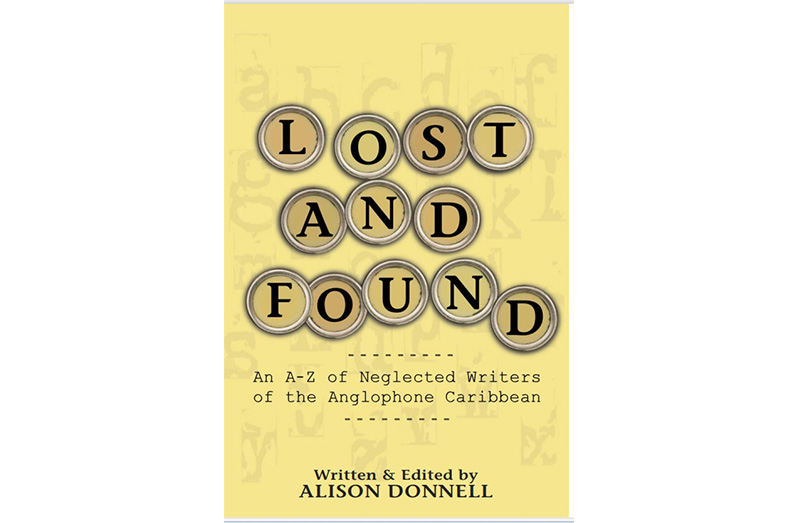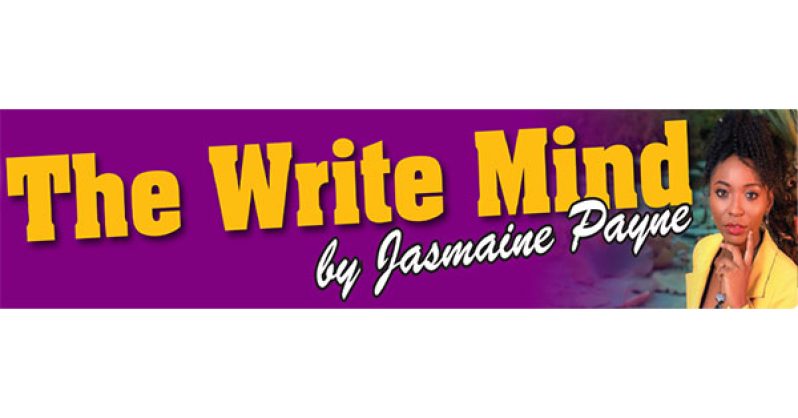ALISON Donnell’s newly published anthology Lost and Found: An A–Z of Neglected Writers of the Anglophone Caribbean is one of those rare finds: meticulously compiled, yet written with an immediacy that makes you want to dig deeper. In a literary landscape that too often celebrates the usual suspects, Donnell dares to challenge the canon and turn the spotlight towards voices that “fell from sight, but whose works deserve to be better known.”
In a way, Lost and Found is a call to arms, where Donnell steps beyond just claiming cultural heritage for a list of recognised figures. Evidently, she aims to transform the very architecture of how we understand Caribbean literature, and she achieves this with the precision of a historian and the heart of a storyteller. What’s even better is that Donnell brings in sharp contributions from other scholars and writers, making Lost and Found a chorus of recovery.

Beyond the “Big Names”
In the Caribbean canon, names like Naipaul, Lamming, Selvon, and Walcott are well acknowledged and, no doubt, with equal merit. But Donnell pushes us to look beyond the narrow spotlight and ask: Who got left in the shadows? Refreshingly, she then answers the question with specific references to writers perhaps too long forgotten.
Take “H,” where Joanne C. Hillhouse introduces us to Eileen Hall, a Dominican-born poet and visual artist who moved through modernist literary circles in the 1920s but is now barely mentioned. Or under “M,” Edwina Melville of Guyana, whose writings about Amerindian identity and her role as a government ethnographer reveal a rare and powerful voice negotiating postcolonial belonging. Then there’s Eula Redhead, rediscovered in “R”, a Grenadian woman whose writing lay buried until Donnell, with help from regional scholars, traced her story and her legacy. The revival is welcomed, but it also highlights the many shadowed corners that we are yet to uncover in our quest for identity through Caribbean literature.
Women, Silenced Twice
One of the strongest messages in this book is the erasure of Caribbean women from the literary record. Whether through editorial neglect, limited publishing access, or assumptions that their writing was “domestic” or “minor,” this book reminds us that female authors were consistently sidelined, perhaps in favour of more marketable options.
Writers like Monica Skeete, Gloria Escoffery, Dorothy Lovell, and Vera Bell all appear here with sharply drawn portraits that highlight how much we’ve lost by excluding them from the conversation. These women all held impressive portfolios, including those of teachers, editors, folklorists, and political thinkers. Many were published regularly in local newspapers and magazines, such as BIM, or contributed to the Caribbean Voices radio programme; yet, most are now virtually unknown outside specialist circles.
Room to Grow
As groundbreaking as Lost and Found is, it should not be taken as the end-all for these portfolios. In fact, readers are only scratching the surface of these vibrant stories, which deserve book-length attention. However, access may also be a consideration in your quest, as while Donnell provides extensive bibliographies and publication trails, much of the referenced work may be out of print or locked away in archives. That’s no fault of Donnell’s, but it highlights the next necessary step: digitisation, republication, and reintegration of these texts into our curricula and cultural discourse.
What’s most admirable about Lost and Found is that it asks what recovery should do. It demands curricular change and points to publishers who can bring these texts back into circulation. For Caribbean readers, it offers validation to see how many different kinds of Caribbean lives were once represented in literature.
Lost and Found is an essential publication on Caribbean literature because it forces us to reconsider what the canon is for. Its contents make the book a permanent fixture on your shelf, where you can return to, teach from, argue with, and build upon. If you care about Caribbean literature, this is required reading.
The Write Mind Verdict
★★★★★ — Essential. A scholarly reckoning with real heart, Lost and Found resets the terms of the conversation and reclaims a literary inheritance we didn’t even know we’d misplaced. Donnell restores Caribbean writers to history with the dignity and depth they deserve.
About the Author
Alison Donnell is a British literary scholar and professor known for her pioneering work in Caribbean, postcolonial, and Black British literature. Currently a Professor of English at the University of East Anglia, she has spent over two decades researching marginalised literary voices, with a focus on gender, sexuality, and diaspora. Donnell co-edited The Routledge Reader in Caribbean Literature and has published extensively on writers such as Una Marson and Olive Senior. Lost and Found continues her lifelong commitment to expanding and challenging the boundaries of Caribbean literary history. Donnell will be speaking about Lost and Found at the upcoming Literary Arts Festival on July 4 at the Castellani House at 14:00hrs.



.jpg)











